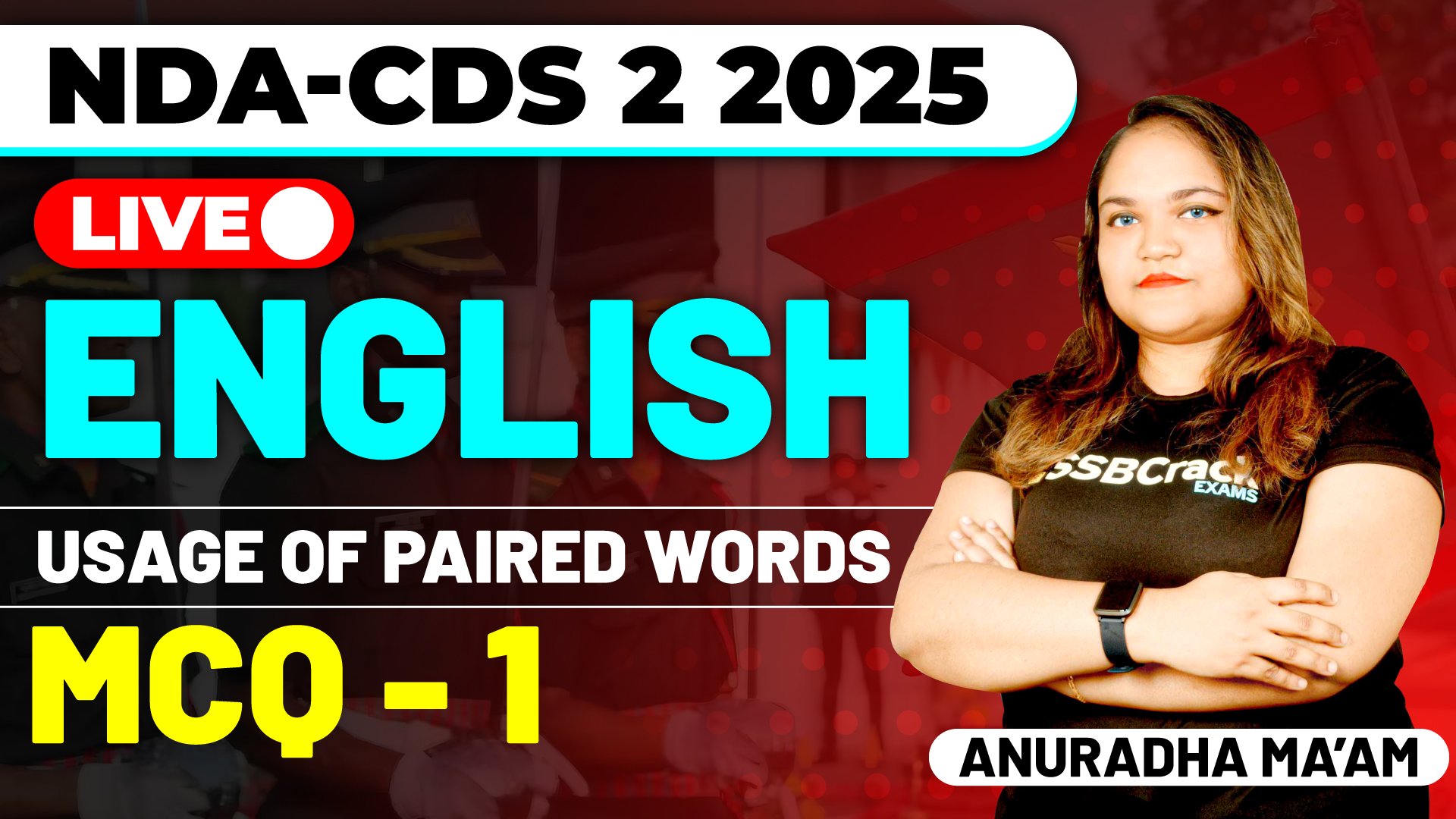In defence exams like NDA and CDS, a strong command over vocabulary is not just about knowing the meanings of words, but also about understanding how and when to use the correct word in the correct context. This is especially tested through the topic of Usage of Paired Words, which focuses on words that are similar in sound or spelling but different in meaning and usage — such as homonyms and homophones.
In the Usage of Paired Words MCQ Live Class 1, candidates solved multiple choice questions designed to test their discrimination between confusing word pairs, requiring sharp attention to grammar, meaning, and context. This session helped aspirants refine their vocabulary skills and prepare for a commonly tested and often misunderstood part of the English syllabus.
What Are Paired Words?
Paired Words include:
- Homonyms: Words that are spelled or pronounced the same but have different meanings.
Example: “right” (correct) vs. “right” (direction) - Homophones: Words that sound alike but are spelled differently and have different meanings.
Example: “complement” vs. “compliment”
Understanding such pairs is vital to ensure clarity and correctness in both spoken and written English.
Directions: In the following questions a pair of similar sounding words is provided. You are required to select the option that most appropriately describes the meaning of both the words and mark your response on the Answer Sheet accordingly.
Q) Flaunt and Flout
(a) Flaunt means to show off and Flout means to spread
(b) Flaunt means to predict and Flout means to build
(c) Flaunt means to protect and Flout means to defy
(d) Flaunt means to show off and Flout means to defy
Ans. (d)
Q) Further and Farther
(a) Further means go away and Farther means away
(b) Further means more and Farther means the distance
(c) Further means away and Farther means below
(d) Further means go away and Farther means below
Ans. (b)
Q) Bear and Bare
(a) Bear means to hold up and bare means cover
(b) Bear means to die and bare means fulfil something
(c) Bear means to hold up and bare means uncovered
(d) Bear means to touch down and bare means cover
Ans. (c)
Q) Uninterested and Disinterested
(a) Uninterested means bored and disinterested means impartial
(b) Uninterested means impartial and disinterested means bored
(c) Uninterested means monotonous and disinterested means partial
(d) Uninterested means sleepy and disinterested means delay
Ans. (a)
Q) Abhorrent and Aberrant
(a)Abhorrent means disgusting and Aberrant means unusual
(b)Abhorrent means unusual and Aberrant means disgusting
(c)Abhorrent means admirable and Aberrant eroding
(d)Abhorrent means disgusting and Aberrant means eroding
Ans. (a)
For more questions, check out NDA & CDS 2 2025 Exam English Live – Usage of Paired Words – MCQ Class 1
What Was Covered in the MCQ Live Class 1?
In this session, candidates practiced MCQs where they had to:
- Select the correct word from confusing pairs based on context
- Distinguish between commonly confused homophones
- Eliminate incorrect options using meaning, part of speech, and sentence tone
Class Strategies for Success
- Create a running list of commonly confused word pairs
- Learn through examples, not just definitions
- Practice identifying part of speech: noun, verb, adjective
- Underline contextual clues before selecting the right word
- Solve regular MCQs to train your reflexes under time pressure
Conclusion
The Usage of Paired Words MCQ Live Class 1 served as a vital foundation for candidates preparing for the English section of NDA & CDS 2 2025 Exams. By practicing real exam-style questions focused on homonyms and homophones, aspirants not only improved their vocabulary but also sharpened their ability to make precise word choices — a skill essential for both the exam and a future career as an officer.
This topic might seem small, but its impact on overall accuracy and language confidence is massive. With repeated practice and concept clarity, it can become one of the most score-fetching areas in the English paper.







